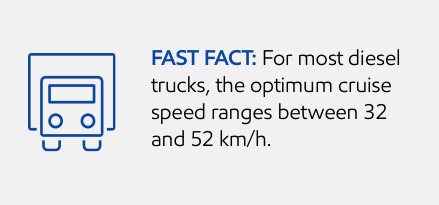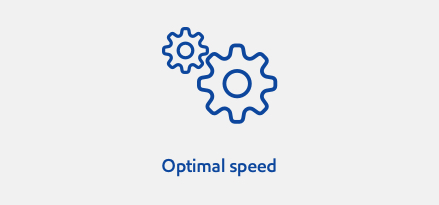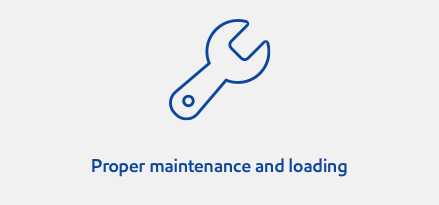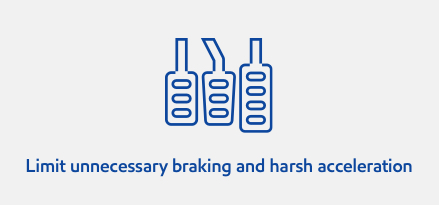Want to find out how our fuels and services can benefit your business specifically? Get in touch!
Energy demand for commercial transportation such as heavy-duty fleets, is driven by the growth in economic activity and personal buying power of consumer goods. The efficient operation of heavy-duty fleets plays an important role in meeting the continuously growing demand for consumer goods delivery in Australia.
Oftentimes, fuel consumption is central to efficient operations. It is easy to assume that a single driver doesn’t have much impact on overall fuel usage, especially when driving regular routes. However, collective best practice behaviours can help your fleet get the most out of your fuel.
The key rule to remember is this: you consume less fuel when you conserve more energy. For example, it takes more fuel to power an engine driving 10 kilometers up a winding hill than it does driving 10 kilometers in a straight, flat line forward.
While drivers won’t be able to control everything about their trips, changes to driving behaviour can help your fleet save on fuel costs and streamline overall business operations.
Here are some top tips on how to operate efficiently – and help your fleet drivers too:

-

The more optimised your route, the less time your fleet spends on the road, which means limiting fuel consumption and conserving energy. Plans that consider interruptions to your journey, such as road works, help drivers navigate external factors within their control to keep the fleet operating smoothly. If such disruptions are unavoidable, adjusting the plan with these factors in mind can help keep the rest of the route as efficient as possible, while improving drivers’ safety on the road.
-

By design, many vehicles have certain speed ranges at which each vehicle’s engine will operate optimally. Cruising at very high speeds will increase frictional losses in the driveline and increase drag from wind resistance. Educating drivers on optimal speed, within the speed limit, creates an efficient fleet that utilises less fuel and thus saves on costs.
-

Experienced drivers become more skilled at driving methods like coasting (less use of accelerator pedal), predicting where to slow down and stop on routes, and other efficient driving behaviours. Fleet managers play an important role in coaching new drivers to form good driving habits, while new vehicle technologies like adaptive transmissions or predictive cruise control may also be able to provide driving support.
-

Running a fleet in suboptimal conditions – with underinflated tires or exceeding a recommended load, for example – will also reduce your efficiency. Proper upkeep of your fleet can help save on fuel in the long run, while keeping products such as tires, lubricants, and diesel fuel consistent can help drivers build a baseline for driving behaviour. This will help fleet managers track the efficiency of their fleets more accurately.
Turning to fuel for help
There are many external factors which affect fuel efficiency, but what happens inside your fleet’s engines?
Modern diesel engines have fuel systems specially engineered to meet today’s stringent diesel engine emissions requirements. Deposits that build up inside the engine can restrict fuel flow and deteriorate fuel spray quality. The results are loss of engine power, increased emissions and reduced fuel economy. Fuels like Mobil Diesel Efficient (MDE) can help prevent deposit formation and clean up existing deposits that may be negatively affecting engine performance. The fuel also works to guard against internal injector deposits, which can contribute to premature injector failure.
In general, MDE fuel offers excellent fuel system corrosion protection and can help prevent premature fuel filter plugging.
There are many factors fleet managers should look out for to optimise fleet performance and drive business bottom lines, and fuel conservation is a powerful one. Proper training for drivers and route planning can go a long way to making trips more efficient, cost-effective and safer too.



